Junmei Hao
Diversity Regularized Interests Modeling for Recommender Systems
Mar 23, 2021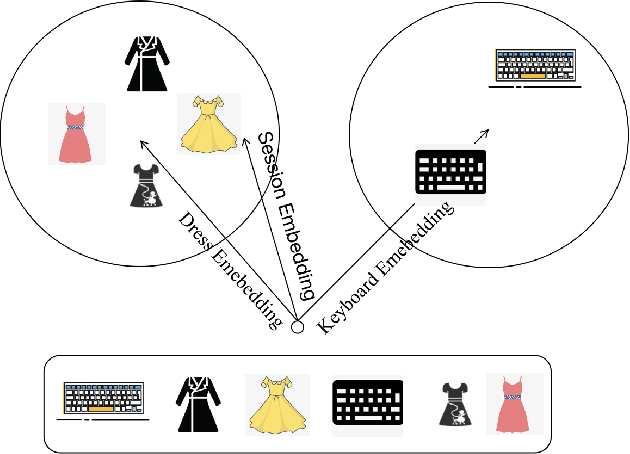
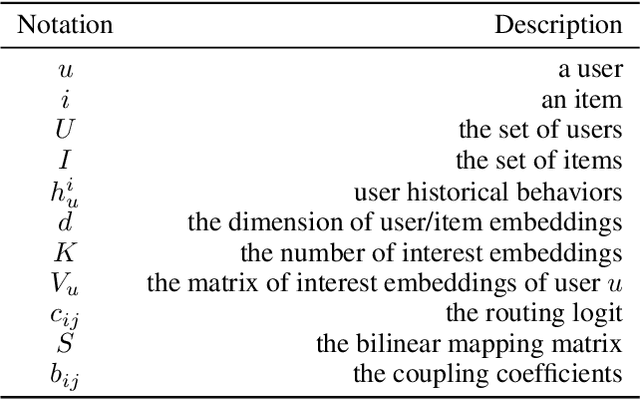
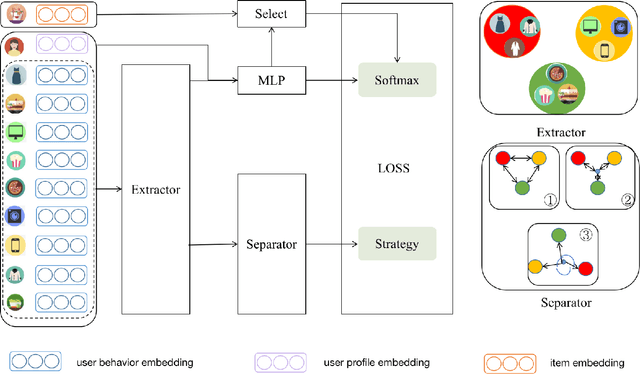

Abstract:With the rapid development of E-commerce and the increase in the quantity of items, users are presented with more items hence their interests broaden. It is increasingly difficult to model user intentions with traditional methods, which model the user's preference for an item by combining a single user vector and an item vector. Recently, some methods are proposed to generate multiple user interest vectors and achieve better performance compared to traditional methods. However, empirical studies demonstrate that vectors generated from these multi-interests methods are sometimes homogeneous, which may lead to sub-optimal performance. In this paper, we propose a novel method of Diversity Regularized Interests Modeling (DRIM) for Recommender Systems. We apply a capsule network in a multi-interest extractor to generate multiple user interest vectors. Each interest of the user should have a certain degree of distinction, thus we introduce three strategies as the diversity regularized separator to separate multiple user interest vectors. Experimental results on public and industrial data sets demonstrate the ability of the model to capture different interests of a user and the superior performance of the proposed approach.
Query-aware Tip Generation for Vertical Search
Oct 19, 2020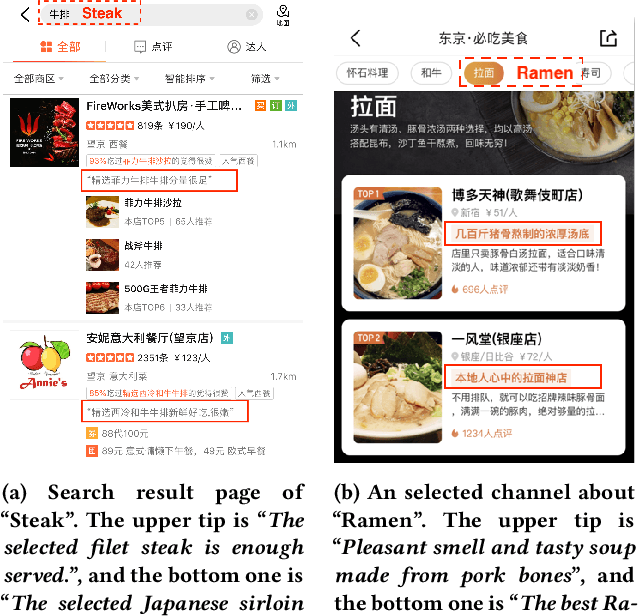
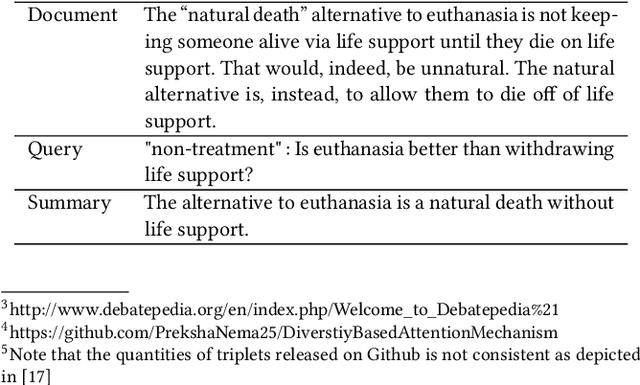
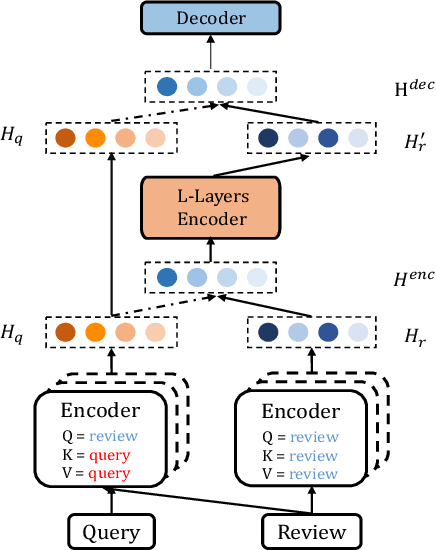

Abstract:As a concise form of user reviews, tips have unique advantages to explain the search results, assist users' decision making, and further improve user experience in vertical search scenarios. Existing work on tip generation does not take query into consideration, which limits the impact of tips in search scenarios. To address this issue, this paper proposes a query-aware tip generation framework, integrating query information into encoding and subsequent decoding processes. Two specific adaptations of Transformer and Recurrent Neural Network (RNN) are proposed. For Transformer, the query impact is incorporated into the self-attention computation of both the encoder and the decoder. As for RNN, the query-aware encoder adopts a selective network to distill query-relevant information from the review, while the query-aware decoder integrates the query information into the attention computation during decoding. The framework consistently outperforms the competing methods on both public and real-world industrial datasets. Last but not least, online deployment experiments on Dianping demonstrate the advantage of the proposed framework for tip generation as well as its online business values.
 Add to Chrome
Add to Chrome Add to Firefox
Add to Firefox Add to Edge
Add to Edge